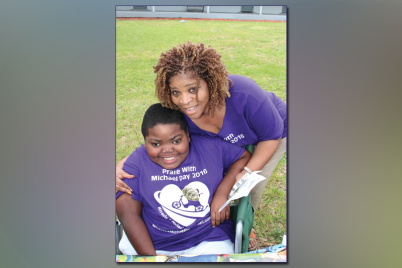Stress in teens can be caused by school, extracurriculars, friends, problems at home, puberty, the death of a loved one, moving, and more.
BY DACIA JACKSON, Teen Journalist
Everyone is affected by stress. To understand stress, you first must understand the hypothalamus section of your brain, which is a section of your brain that monitors and maintains homeostasis in the body and controls hormones.
Due to people’s natural response to events, emotions eliciting fear, anger, or worry, can cause the hypothalamus to send alerts through the nervous system to the kidneys. Basically, telling them to release adrenaline and cortisol. Also known as epinephrine or the stress hormone.
According to WebMD.com, cortisol is “nature’s built-in alarm system” and “controls your mood, motivation, and fear” by working with parts of your brain. Adrenal glands located in your kidneys make cortisol, so the hypothalamus must signal the kidneys for the person to feel stressed.
Stress can have several physical and mental reactions in your body. It can cause your body’s temperature to rise, feel jittery, irritable, or angry. Long-term stress can have severe consequences, two of them being insomnia or anxiety.
Everybody is affected by stress somehow, and by the time you’re a teen, it is nothing out of the ordinary. Stress, like many things, fortunately, has two sides. There is such a thing as good stress. Stress can keep you on your toes, alert your body of danger, and motivate you. It’s hard to think of stress as a good thing when it’s like a thought you can’t shake, but if you were in a life-threatening situation, you might actually be grateful for it.
Stress in teens can be caused by several things: school, extracurriculars, friends, problems at home, puberty, death of a loved one, or moving. If you were to list all the possible teen stressors of the past year, you would have to include the coronavirus.
The stress of waiting for the latest news on safety precautions you should be taking, to wear a mask or not, and whether kids should be vaccinated. The responsibility given to the next generation has unequivocally affected the mental health of many teens.
Stress is a problem; so, let’s stop it.
It’s just as President Theodore Roosevelt said, “complaining about a problem without proposing a solution is called whining.” So here it is — coping mechanisms.
When I’m stressed, I like to distract myself. Distractions like reading, listening to music, art, watching TV, going to the beach or park, cooking, or building models. I always have to find some other activity that isn’t related to my assignments.
If I don’t distract myself, I’ll stress myself out to the point where I have a headache, and I don’t feel well. So, coping with stress is super important to my health. And every person who suffers from stress, which is everyone, should find a healthy outlet.
When you’re stressed, you tense up, so try and relax. This is probably the last thing you want to do when you have an assignment due tomorrow and you haven’t started; however, the consequences of stressing and making a habit out of it could be harmful!
In my opinion, stress can become an ongoing pattern. Once you stress over an assignment and get that assignment done on time with a flawless grade, the next time you run short on time, you’re going to remember the previous success and repeat it until it becomes a habit.
An endless cycle of stress. So, relax!
When you’re stressed, everything seems urgent. Everything you have to do today has to be done and completed right now! Everything you need to do in the future has to be decided and prepared upon today. The only way to cope with this is to have your priorities straight.
There is always something more important. This is always difficult for me because I want to do everything now so I can have more time for other activities.
Everybody faces stress, which means there are millions of different strategies to dealing with it. Realizing that stress doesn’t pick a person because of gender, religion, ethnicity, or political standpoint is the start of winning the fight against it!
Sean Covey’s “The 7 Habits of Highly Effective Teens” states, “Be proactive, begin with the end in mind, put first thing first, think win-win, seek first to understand then to be understood, synergize, and sharpen the saw.”
Balance is the solution! So, try to have some fun! Pick an activity you enjoy, such as exercising deep breathing or relaxation exercises, or even spending time with your family or friends.

Dacia Jackson
Dacia Jackson is a teen journalist, author, and artist with aspirations of becoming an attorney. She is currently pursuing an interest in journalism while attending a Florida online school. Dacia is honest, ambitious, and tenacious, so her column will always be truthful, extraordinarily unique, and hopefully impactful.
Sources:
What does the hypothalamus do?
30 Ways Stress Can Affect Your Body
5 Things you should know about stress
5 Facts about Stress (and 17 Ways to Deal with It)
Common Stressors in the Teenage Years – and Their Impact on Eating Disorder Recovery









